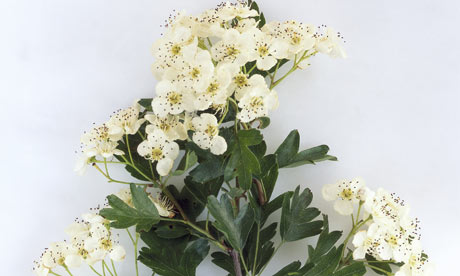
Tomorrow, an army of medical herbalists will be demonstrating outside the House of Commons. "What are they going to do," wonders sceptic Adam Rutherford, an editor at the science journal Nature, "wave strands of lavender at MPs?" But Michael McIntyre, chair of the European Herbal and Traditional Medicine Practitioners Association (EHTPA), has called for the demonstration because, quite frankly, he has had enough.
For several decades, it's true, the field of complementary and alternative medicines (CAMs, as they are often known) has boomed, with acupuncturists, osteopaths and homeopaths springing up on every corner. Lately, however, a fierce backlash has been brewing. Scientists such as Professor Edzard Ernst (who puts complementary medicine's claims through clinical trials), and writers such as the Guardian's own Ben Goldacre, have turned a long-needed microscope on to CAMs and accused them of being at best harmless, and at worst fraudulent and toxic. Herbal medicine was described by Rose Shapiro, in her book Suckers: How Alternative Medicine Makes Fools Of Us All, as mostly "ineffective . . . if it worked and was safe it wouldn't need to be alternative . . . Herbal medicine should be subject to the same evidence-based regulation as are orthodox pharmaceuticals."
These days, though, the majority of herbal practitioners are crying out for regulation, but despite promising to implement this for 20 years now, the government is still dragging its heels. Meanwhile, discredited herbalists are able to continue practicing, giving the field a bad name. And next year, when European legislation comes in which will stop unregulated practitioners from accessing many key herbal medicines, UK herbalists may well find themselves snookered.
But it has not all been bad news, as some new clinical trials have proved the efficacy of various herbal treatments. A review of studies of hawthorn (authored by Ernst) concluded that it is not only useful as a treatment for chronic heart failure, but also carries few of the risks associated with some conventional medicines. Horse chestnut, in another study by Ernst, has been shown to be useful for treating chronic venous insufficiency (when leg veins are not strong enough to pump blood back up to the heart), again with fewer side effects than conventional equivalents. And some of the studies on St John's wort have shown that it can improve symptoms of depression.
Garlic, another common herbal treatment, is regularly shown to reduce blood cholesterol, while black cohosh, an ancient Native American treatment, has had some success in clinical trials of its efficacy in treating menopausal symptoms. Studies of green tea,meanwhile, have shown that it can help inhibit tumour growth.
But this is not enough for the sceptics. "Yes, a few herbal treatments may turn out to be medically effective," says Rutherford. "But for every one that turns out to work, there are hundreds that are just bollocks. It's not half and half; many of these treatments turn out to be no better than a placebo."
And yet scientists are increasingly turning back to the natural world in their search for modern medicines.Research is throwing up rich and intriguing results, showing that, among other things, the combination of tomatoes and broccoli is more effective in combatting tumours than either vegetable used alone; that cranberries really are effective at preventing urinary tract infections; that ginger can reduce nausea in the early stages of chemotherapy.
Declan Naughton, professor of biomolecular sciences at Kingston University, was part of a team which last year showed that mixing pomegranate rind with metal salts and vitamin C created an ointment effective at fighting the hospital superbug MRSA. "As time has gone on," he says, "it has become more and more clear to me that a great number of the drugs we use originate from plants. If you were to sit down and list them, you'd be speaking for a long while, and if you're looking at developing new drugs, then you should obviously look to nature."
Could there ever be a meeting of minds between ancient herbal and modern medics? "You do have [herbal practitioners] following practices that are just unacceptable," says Naughton. "But you also have an increasing number of scientists screening herbs to find new drugs; more and more scientists are turning back to the original sources of medicine, the micro-bacteria, marine organisms and plants from the rainforests."
"For centuries now we've been using these treatments," says McIntyre, a herbalist himself for 30 years. "It's profoundly frustrating to have to spend so much time battling to get ourselves regulated when what I'd really like to be doing is be in my practice, treating people."

